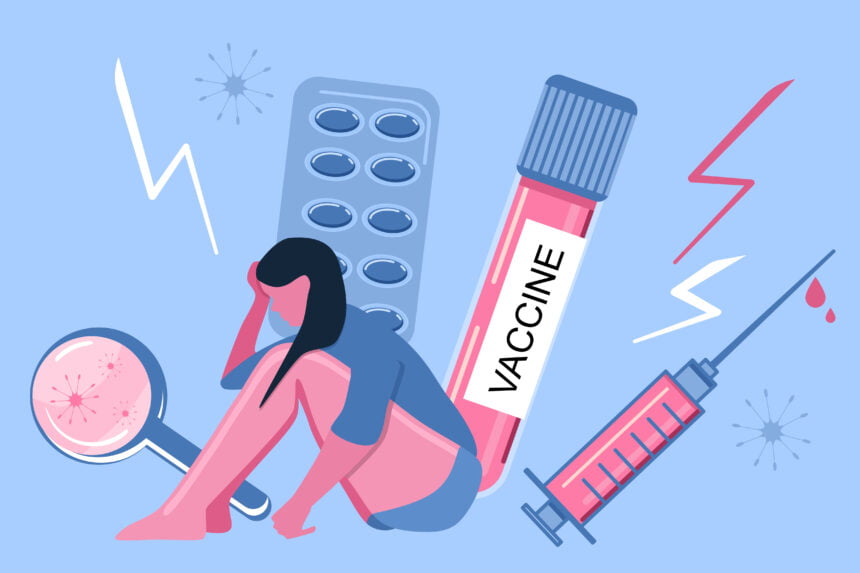Like every living organism, the human body contains multiple functions that perform the roles they’re tasked with flawlessly. By having them fulfill their purpose, they all work to ensure one’s body remains in peak condition.
However, despite having bodily functions performing their specified duties, they’re bound to lack in some areas. For instance, your immune system responsible for protecting and helping your body fight infections and other diseases may weaken and not be able to withstand foreign invaders, such as germs, viruses, and bacteria. Once that happens, you’ll find yourself infected by a disease. But that’s what makes vaccines extremely important.
What Are Vaccines For?
Vaccines are designed to work with your immune system to create antibodies against various diseases and illnesses. For this to happen, they imitate the virus or bacteria causing a particular disease which triggers the creation of antibodies. These antibodies will protect your body once you get infected by the actual disease-causing virus or bacteria.
Some people, however, express vaccine hesitancy. Considering how vaccines contain various substances and knowing they’re injected into your system have brought up multiple misleading notions, such as vaccines ‘altering’ the recipient’s genetic material.
As a result, several cases of ‘medical malpractice’ have already been filed, ranging from alleged improper administering to filing a claim against the vaccine itself. Even troublesome infections like shingles aren’t free from a shingles vaccine lawsuit; the same goes for measles, mumps, and rubella (MMR) vaccines. And the side effects people undergo after getting vaccinated aren’t gaining any favors.
Side-Effects Of Vaccines
As mentioned, vaccines work by administering an imitation of an infection. This develops your immune system to fight the infection at hand better. However, since it contains an imitation of the infection, you’re bound to undergo the exact symptoms one gets from the real thing. Although they’re scaled-down, the severity of these symptoms depends on whether or not you have health conditions.
Although various vaccines cause different side effects, the mild ones generally encountered by healthy patients after vaccination are the following:
1. Similar Symptoms To Cold
One of the most common side effects you’ll experience after getting vaccinated might be uncannily similar to something else, especially if you frequently get sick. The reason you find it so familiar is some of these side-effects point toward the common cold.
Mild fever, chills, headache, fatigue—you’ll be experiencing these effects after taking the shot or during an awful cold. Although they seem like a hassle, these are signs that your body is responding to the vaccine. Through this response, your immune system builds up against the targeted disease.
2. Post-Injection Inflammation
Many people, especially children, are wary of vaccines due to how intimidating their needles are. Considering how pointy they are, having needles injected into you to administer the medicine could be extremely daunting. While it’s challenging to dispel your fear of needles, perhaps you should remember that the pain will be brief.
Since you just got a needle injected into you, it’s inevitable for the injection site to be tender or swell up, but only for a while. Pain occurs as a sign that your immune system is working to create new antibodies to fight the administered virus. As long as it’s administered properly by an expert, the pain should linger for a few hours at most as a dull ache.
3. Muscle Pain
Other than the injection site, the rest of your body can also experience aches all over. Due to getting bombarded by the vaccine’s virus, your muscles will be dehydrated. After all, copious amounts of water are needed to withstand the virus effectively. Therefore, moving would be a troublesome endeavor for a while.
Are These Side Effects Worth Getting Worried About?
Although the symptoms mentioned earlier may seem bothersome, they’re all manageable. However, this experience might be different for each patient. Vaccines are meant to help people. Unfortunately, there are numerous factors involved that could influence how well the patient receives it. So, what’s supposed to be ‘mild’ can easily escalate into ‘adverse’ side effects, quickly putting you at high risk.
Faulty immunity, poor administration, and unknown health conditions make up your typical groundwork for adverse reactions to take place. To guide you, here are some of the worrisome adverse side effects to expect after getting vaccinated:
Allergic Reaction
While it’s a rare condition, having an allergic reaction flare up after taking the vaccination can still occur. This may be caused by the vaccine itself or its components. Like any allergic reaction, this can get life-threatening if left alone as seen from symptoms, such as:
- Difficulty breathing
- Drop in blood pressure
- Swelling tongue
- Rash
Knowing allergies, even though you’re only experiencing one symptom, it doesn’t mean the rest won’t follow if unattended. Therefore, getting immediate medical attention is highly recommended.
Severe Muscle Pain
As mentioned earlier, it’s not uncommon for the injection site to ache after getting vaccinated. After all, it should be nothing more than a dull pain. However, that changes if the practitioner failed to administer the vaccine properly. Because instead of slowly fading away, the ache will only double the longer it remains unattended. Improper administration can tear into muscle or blood vessels, causing the patient to have Shoulder Injury Related to Vaccine Administration (SIRVA). Eventually, the pain reaches a point where you can no longer move your shoulder due to permanent dysfunction.
Takeaway
One’s body is already equipped with an immune system to withstand numerous infections. Unfortunately, the further time progresses, the more evolved organisms get, including bacteria and germs. Therefore, if you want to improve your immunization, getting vaccinated is the right move to take. However, considering it contains foreign substances, vaccinations will have you experiencing side effects during the adjustment period. And knowing the difference between which one’s ‘expected’ and ‘severe’ can help you prepare for whatever happens.







